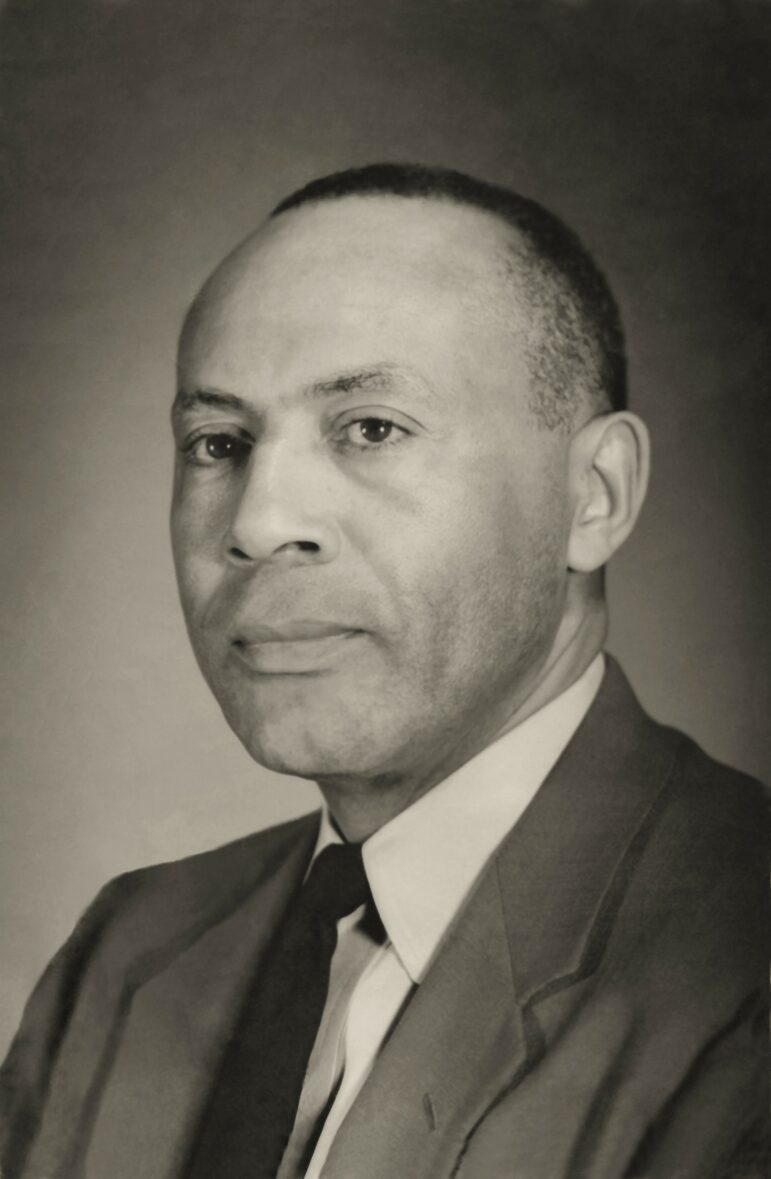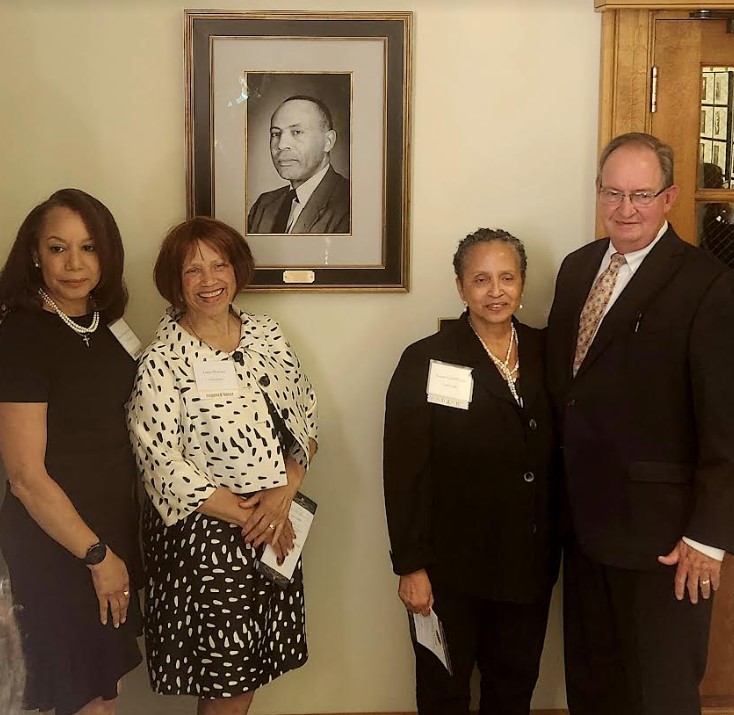
The New Hampshire Supreme Court on Friday unveiled an official portrait of Judge Ivorey Cobb (1911-1992), left, who served as a judge in the Colebrook District Court from 1964 until his retirement in 1981. Judge Cobb was the only African-American judge in the history of New Hampshire.
“Judge Cobb was a trailblazer among New Hampshire jurists,” said Senior Associate Justice Gary Hicks, who is from Colebrook. “As the first African American jurist in New Hampshire, Judge Cobb was committed to equal justice under the law. This was not just a professional standard for Judge Cobb, instead it was the calling of his lifetime. He was a true believer in the ideals of America and was determined to make his community and his country a more perfect union.”
Judge Ivorey Cobb was born in rural Alabama in 1911 and attended Duquesne University, going on to a career in journalism and newspaper publishing, overseeing major publications serving the African American community in Pittsburgh, PA prior to entering the US military in 1942. Judge Cobb served as a commissioned US Army logistics officer stationed in Europe during WWII and served in the Korean War. After 20 years in the military, he retired at the rank of Major in 1962, attending Suffolk University School of Law and earning his Juris Doctor in 1965. Judge Cobb moved with his family to Colebrook that same year after he was appointed Associate Justice of the Colebrook Municipal Court by New Hampshire Governor John W. King in 1964. In 1968, he was appointed Justice of the Colebrook District Court, where he served until 1981.
Justice Hicks continued, “Judge Cobb showed a keen intellect and grasp of the law, a firm eye on justice and accountability for one’s actions, and compassion for the less fortunate in our society who may have gone through hard times or sometimes had lapses in judgement. It was such an honor to know him. My colleagues and I are proud to be able to honor the career and contributions of Judge Ivorey Cobb and the strong example he set for jurisprudence in New Hampshire.”
“My grandfather Ivorey referred to New Hampshire’s North Country above Franconia Notch as God’s country. Judge Ivorey Cobb was a frontiersman who reached career peaks in the White Mountains, and in terms of innovative thinking and entrepreneurship,” said Marilyn McDonald ‘Mimi’ Hendricks, granddaughter of Judge Cobb. “He was sustained by faith, family, friends, sponsors and mentors. Judge Cobb wrote about himself: once a newspaper man, always a newspaper man. He strongly believed that just like reporters, lawyers must also possess a strong respect for words, and that advocacy must rest upon a strong factual foundation. He always insisted that we get all the facts from multiple sources to support educated decision making. Judge Cobb believed that words mattered so much that he included writing assignments in his innovative and controversial method of sentencing juvenile offenders. Juveniles had a chance of either going to jail, performing community service, or attending a church of their choosing. The church option required weekly 100 word essays signed by the minister. Judge Cobb believed that these sentences were opportunities to divert some – not all – juvenile offenders from becoming hardened criminals. Many years later on Main Street in Colebrook, a prior offender shared that Judge Cobb had saved his life by sending him to church.”
“Born at a time of great racial tension, Judge Cobb broke down barriers and dismantled the walls that confined progress,” said James McKim, President of the Manchester Chapter of the NAACP. “His commitment to justice was unyielding as he navigated through the legal landscape that often overlooked the voices of the marginalized who looked like him. The unveiling of his portrait is not just a celebration of the past, but a call to action for the present and for the future. Ivorey Cobb’s legacy urges us to continue the work that he started. To fight for a more equitable society, and to ensure that every individual, regardless of their background, has access to a fair and just legal system. As we gaze upon the portrait, let us remember the struggles faced by those who came before us, and let us be reminded that the fight for justice is ongoing. Let this portrait stand not only as a representation of Ivorey Cobb, but as a symbol of our collective determination to build a society – a beloved community – founded on principles of equality, respect, and justice for all.”
The portrait of Judge Ivorey Cobb will be permanently on display at the Supreme Court building on Charles Doe Drive in Concord. The unveiling was sponsored by the New Hampshire Supreme Court Society in conjunction with the New Hampshire Bar Foundation and the Manchester Chapter of the NAACP.





